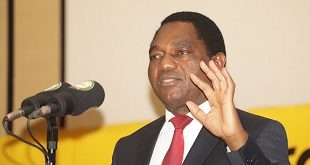
COMMENT | Gertrude Kamya Othieno | As we step into 2025, I wish all my readers a year filled with hope, growth, and meaningful progress. Reflecting on the past year, my writings have explored the sweeping tides of globalisation over the last 600 years and their profound impact on humanity. These reflections hold a mirror to Africa’s journey, its highs, its struggles, and its enduring potential.
When Christopher Columbus landed in the Americas in 1492, the world’s major regions, including Africa, were at comparable levels of development. The Sahel region of Africa boasted powerful empires such as Songhai, which excelled in governance, trade, medicine, and innovation. Timbuktu was a thriving hub of intellectual excellence, housing one of the world’s oldest universities. African advancements in agriculture, ironworking, and pharmacology could have laid a foundation for sustainable progress.
However, the arrival of European colonialism altered the trajectory. Africa’s people, resources, and innovations were exploited to fuel the development of other continents. While Europe built industries with African labour and raw materials, Africa was stripped of its wealth, its institutions destabilised, and its potential suppressed. The loss was not just economic, it was a loss of self-determination, culture, and trust.
The struggles for independence in the mid-20th century were a powerful assertion of agency. Countries like Ghana, under Kwame Nkrumah, inspired a wave of Pan-Africanism, emphasising unity and self-reliance. But the colonial legacy was deeply embedded. Weak governance systems, arbitrary borders, and extractive economies left many countries grappling with corruption, inequality, and dependence.
Yet, even in these challenges, there is resilience. South Africa’s post-apartheid era, for instance, offers a profound example of how traditional African justice systems can address historical wounds. The Truth and Reconciliation Commission (TRC), under Archbishop Desmond Tutu, embraced the ethos of ubuntu, a philosophy rooted in compassion and the interconnectedness of humanity. Rather than seek vengeance, the TRC provided a platform for victims and perpetrators to speak their truth, fostering healing and paving the way for national reconciliation.
This resilience underlines the potential for an African Renaissance. The first step is reflection, acknowledging the systemic issues that hinder development and reclaiming what works for us. Africa can not afford to imitate models that fail to align with its realities. Instead, we must forge our own paths, grounded in our diverse cultures and histories.
We must also embrace technology but on our terms. Take renewable energy: Africa’s vast solar and wind resources can provide clean energy solutions that bypass the mistakes of industrialisation in the Global North. But this requires investment in African-led innovations, not reliance on external players with exploitative motives.
Equally important is integrating spirituality into our development ethos. In many African societies, spirituality is not separate from daily life but a guiding principle in decision-making. By weaving this wisdom into governance, environmental conservation, and education, we can create a holistic model of development that values humanity, nature, and heritage.
As we move forward, let us celebrate our resilience and the lessons our history has taught us. The time has come for us to own the narrative. Africa is not just the cradle of humanity, it is the heartbeat of the future. From the bustling markets of Lagos to the innovative hubs of Nairobi and the resilience of rural communities across the continent, we see evidence of a continent on the rise.
Let 2025 be the year we turn challenges into opportunities, drawing strength from our roots and vision from our dreams. May we stand united in building a future where Africa leads not in despair but in innovation, unity, and hope.
Happy New Year to all, and may it bring renewed strength for the journey ahead.
*****
 Gertrude Kamya Othieno | Political Sociologist in Social Development (Alumna – London School of Economics/Political Science) | Email – gkothieno@gmail.com
Gertrude Kamya Othieno | Political Sociologist in Social Development (Alumna – London School of Economics/Political Science) | Email – gkothieno@gmail.com
 The Independent Uganda: You get the Truth we Pay the Price
The Independent Uganda: You get the Truth we Pay the Price



